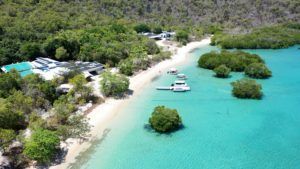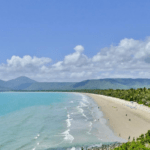
What’s the difference between marine science and marine biology?
Marine science or marine biology: Which one is right for you?
Marine science comprises marine physics, chemistry, geology and biology under the ocean and sea. It includes all forms of general oceanography, physical oceanography (tides, waves, etc.), chemical oceanography (sea salts, properties of water), geological oceanography (mid-ocean ridges, sea floors, hydrothermal vents), and engineering (underwater technology).
Marine biology deals with the flora and fauna of the vast ocean and other saltwater environments such as estuaries and wetlands. Marine biology generally refers to the anatomy, physiology, behaviour, diversity and evolution of marine organisms, and how they relate to each other (ecology). It is all about marine life—species and genetic diversity, their origins, how they live, their physical tolerances, what they do, how they interact with each other and, from an ecological point of view, what influences variation in population size. From this we can learn how to use marine populations sustainably.
If you’re interested in animal behaviour, choose marine biology. If you’d like to look at the physics of oceanography, choose marine science.
Both paths are related and work together.
About the JCU Bachelor of Marine Science
James Cook University’s Bachelor of Marine Science degree is a comprehensive course studying the elements of the ocean with an emphasis on firsthand experiences. Access diverse learning environments including the Daintree Rainforest and Orpheus Island on the Great Barrier Reef.
JCU’s marine science degree focuses on the sustainability of the oceans and is ideal for students interested in physical and chemical science, or an oceanography degree. Specialist marine science degrees suit those interested in sustainably managing healthy marine ecosystems.
Take advantage of JCU’s real-world practical experience. Study your marine science bachelor degree on site at coral reefs, islands, mangroves, and seagrass beds including the Great Barrier Reef National Park. Access JCU’s research vessels and the JCU Orpheus Island Research Station and Aquarium Complex.
Program: Bachelor of Marine Science
Location: Townsville, Queensland
Semester Intakes: January or September
Duration: 3 years
Admissions Requirements: You must have a completed secondary school diploma with an average of 63% in your top 5 final-year examined subjects. For Ontario Secondary School Diploma (OSSD), you must have an average of 63% in your top 6 final-year subjects. You must have assumed knowledge subjects in English, general math or mathematical methods, and chemistry or equivalent.
About the JCU Bachelor of Science (Marine Biology)
Access state-of-the-art research and teaching facilities, like JCU’s The Science Place. Experience a leading-edge education from the world’s best institution for marine and freshwater biology studies and biodiversity conservation.
JCU students have the opportunity to tailor their degree to suit their passion. Learn the fundamentals of science in your first year, then select one or two specializations to continue to build knowledge and skills in your chosen discipline. There are 9 majors within the Bachelor of Science, and you can choose to study one or two majors, including marine biology.
Studying the Bachelor of Science (major in Marine Biology) at JCU means you’ll learn from lecturers who are world-leaders and be equipped to address critical challenges facing marine and coastal ecosystems. Study in a location that gives you access to one of the most diverse and fragile marine ecosystems in the world, the Great Barrier Reef. Benefit from JCU researchers’ strong links with industry including the Great Barrier Reef Marine Park Authority (GBRMPA), TropWater, and CSIRO Townsville. As a marine biologist, you could work in conservation biology and policy, environmental and resource management, fisheries biology, ecosystem restoration, and marine impact assessments.
Program: Bachelor of Science (Marine Biology)
Location: Townsville or Cairns, Queensland
Semester Intakes: January or September
Duration: 3 years
Admissions Requirements: You must have a completed secondary school diploma with assumed knowledge subjects in English, chemistry, general math or mathematical methods or equivalent.
Start your application to James Cook University!
*





































Ask A Question
Ask us about your program of interest, or if you have a question about our services.
CONTACT US TODAY